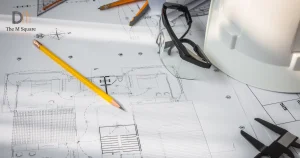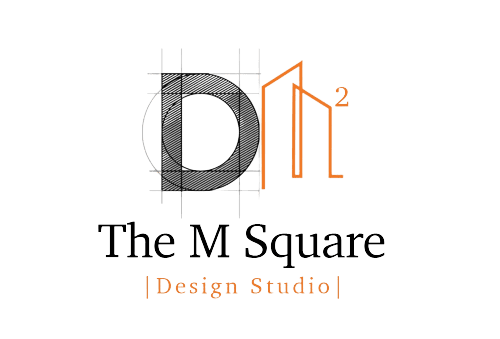Difference Between an Architect and a Contractor in 2024: Who Do You Need for Your Project?
Congratulations! You have decided to begin on an exciting journey to build or renovate your dream space. But with so many decisions to make, where do you start? Two main players emerge at the forefront: architects and construction contractors. Although their roles may seem switchable, it is important to understand the different expertise each brings to the table for project success.
Rather than the general description, this blog looks at the deep differences between architect vs contractor in 2024. We learn about their individual talents, navigate a constantly changing construction site, and also touch upon other issues such as the impact of technology and environmentally friendly building practices.

Table of Contents
ToggleRole Of An Architect
Consider the architect like Michelangelo in your project. They combine creativity, technical knowledge, and an unchanging commitment to transforming our customers’ visions into functional and aesthetically beautiful spaces. Their responsibilities are: • Concept Design: The architect is the mastermind behind the original concept. They listen to your needs, understand your lifestyle, and translate them into a coherent design plan. This includes sketches, 3D models, and mood boards to bring your dreams to life. • Room Planning: Ensure optimal use of space. From maximizing natural light to creating efficient traffic flow, their expertise prevents post-construction regrets. • Building Codes and Regulations: The complex web of building codes and regulations is an architect’s strength. These ensure that the project complies with all safety and legal requirements. • Sustainability: In 2024, green building practices will be more important than ever. Architects are experts at incorporating elements like sustainable materials, energy-efficient design, and rainwater harvesting to future-proof spaces. Did you know? According to a 2023 Houzz & Home survey, 82% of homeowners prioritize sustainability features when renovating their kitchens! Architects can help you achieve this while staying within budget.Role Of A Contractor
The contractor is the person in charge of the project. They take the architect’s plan and turn it into concrete reality. Their main responsibilities are: • Project Management: From scheduling subcontractors to managing budgets and schedules, contractors ensure projects run smoothly. They anticipate challenges and communicate effectively with everyone involved to ensure a stress-free experience. • Construction Expertise: contractors have extensive knowledge of construction techniques, materials, and safety protocols. By comprehending the complexities of the building process, they can recommend budget-friendly options while maintaining high standards. • Subcontractor Coordination: A successful project requires the cooperation of a variety of skilled workers, including electricians, plumbers, and carpenters. The contractor handles the hiring, scheduling, and monitoring of these subcontractors to ensure that operations are seamlessly integrated. • Technology integration: The construction industry is using technologies such as Building Information Modeling (BIM) to improve coordination and visualization. Forward-thinking contractors make good use of these tools to increase project efficiency.Architect and Contractor Collaboration
Ideal scenario? Having both an architect and a building contractor on board. They work best when they work together. Although their roles are different, they work together to achieve your vision. Architects provide original ideas and technical specifications, while contractors implement them. Here are some lesser-known aspects of this collaboration. • Value Engineering: During the design phase, architects and contractors work together to identify cost reduction opportunities without compromising quality or functionality. This may include suggestions for alternative materials or construction methods. • Site Inspections: Regular site inspections ensure that the building complies with the plans and address any unforeseen problems that may arise. Both architects and construction contractors bring their expertise to these visits. • Change Order: Unexpected situations may arise during construction. “Change orders” are created by architects and contractors to document any deviations from the original plan and modify the budget accordingly.
So, Who Do You Need? Architect vs Contractor
The choice between an architect and a contractor depends on the scale and complexity of your project. Here’s a breakdown to help you decide: Smaller Projects (Renovations, Kitchen/Bath Remodels): For smaller projects, a skilled contractor who can interpret existing plans and handle construction might suffice. Larger Projects (New Builds, Major Renovations): For complex projects, an architect is crucial. They’ll create a detailed design, manage permits, and guide you through material selection, ensuring your vision aligns with your budget. They can also help you find a qualified contractor who can execute the design flawlessly.Bonus Tip: The Interview Advantage
When interviewing potential architects and contractors, don’t just focus on experience and price. Ask questions that reveal their design philosophy, problem-solving skills, and communication style. Look for someone who gives you confidence and feels like a good fit for your project and personality. Building your dream space is an exciting but complex process. Understanding the different roles of architects and contractors can help you make informed decisions and assemble the perfect team to make your vision a reality. Please remember, Successful projects are built on clear communication, collaboration, and a shared passion for creating something truly great.Contact us for freindly advice
pk-admin
Related Posts
Architects means providing architectural services to you. architects...
Everyone has a wish to have their own...




